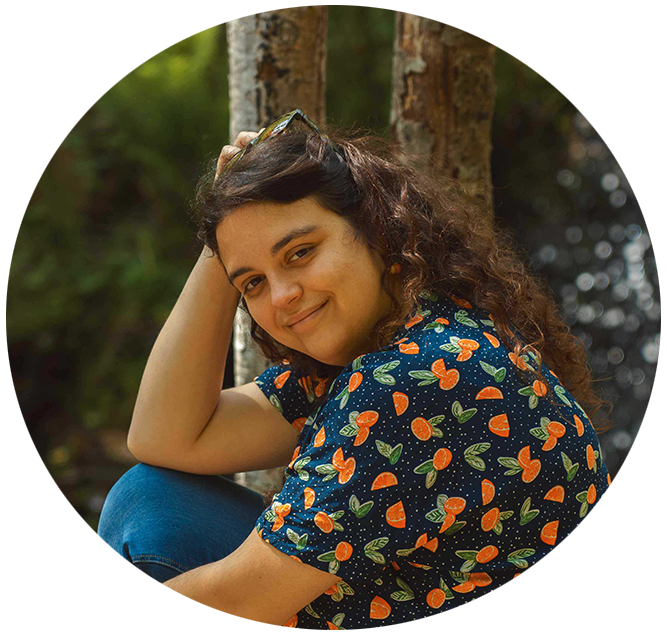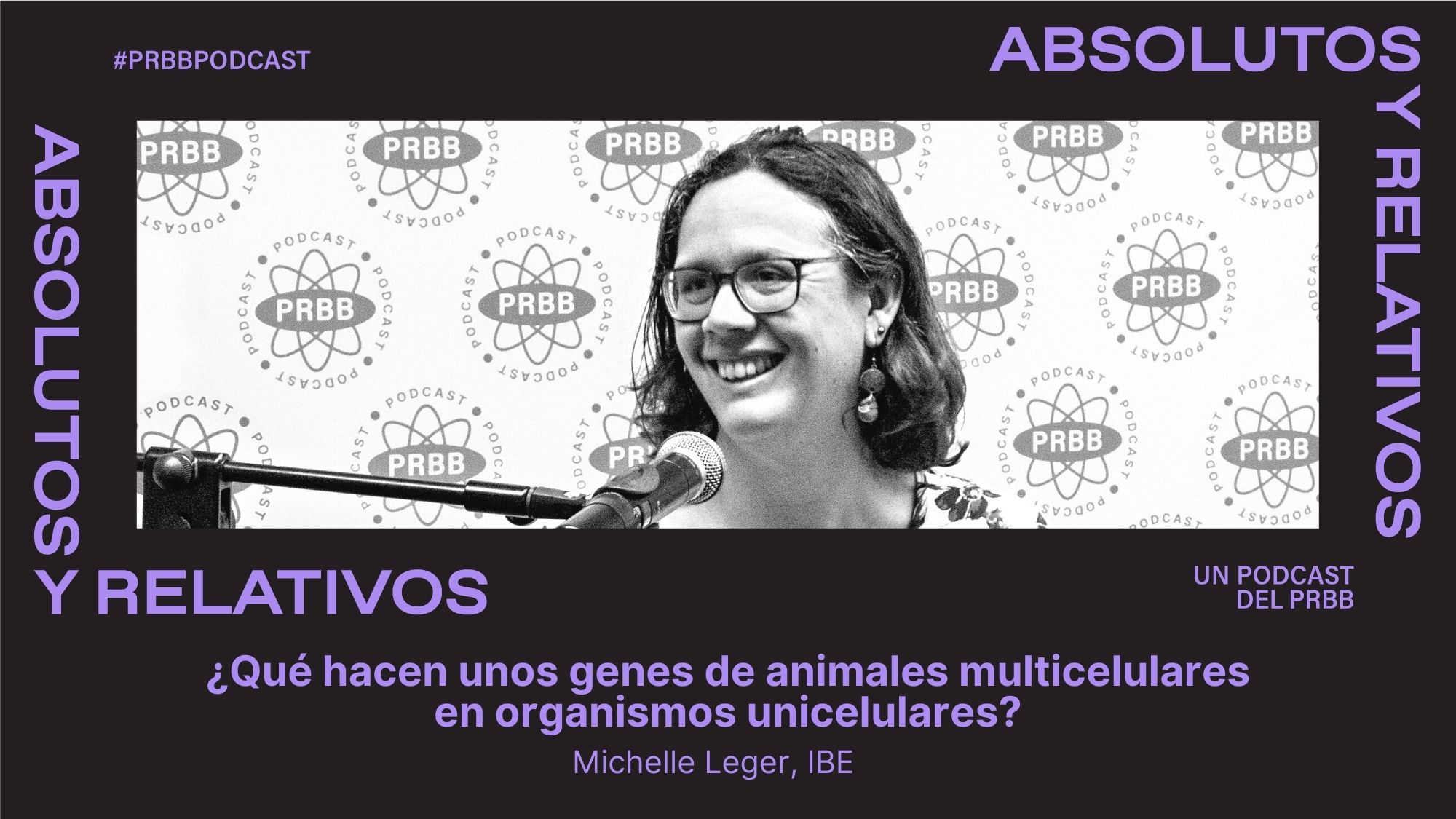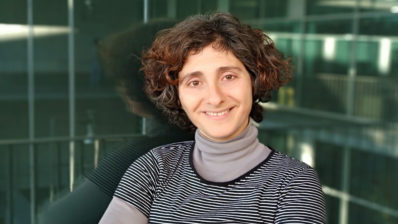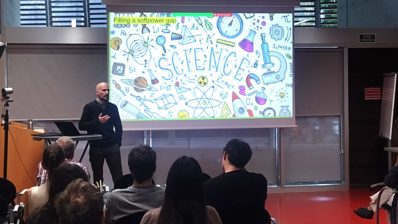One of the great questions about the appearance of life on Earth is how the evolutionary process of the planet went from unicellular to multicellular organisms. And this is one of the questions that Michelle Leger, the star of the second episode of the new season of ‘Absolutos y Relativos‘, is trying to resolve through her work at the Multicellgenome lab at the Institute of Evolutionary Biology (IBE: CSIC-UPF), led by Iñaki Ruiz-Trillo.
To do so, the lab focuses on studying protists, a very diverse group of unicellular beings that is often referred to as a “catch-all”. Because, although they are eukaryotic organisms, their classification is quite complex as they are neither plants, nor animals, nor fungi. And although progress has been made in their classification in the last six years, there is still much to be discovered.
“What fascinates me most about studying protists is how much we still have to learn”
Michelle Leger (IBE)
Michelle’s main work focuses on studying apoptosis, the process of programmed cell death. Although this process is only present in animals, some genes involved in it have been discovered in protists. This leads the scientific community to suspect that some forms of programmed death may exist in single-celled organisms, for example, in the face of virus infection. So, in her day-to-day work, Michelle analyses whether the proteins made by these genes in both types of organisms also share functions in both.
Michelle also tells us that she is committed to diversity and inclusion in science: “Modern science is something that can only be achieved with scientists working together. Because, although we all have a different profile, it is better to work with people with different knowledge and perspectives from your own“.
What are you waiting for to listen to her?







